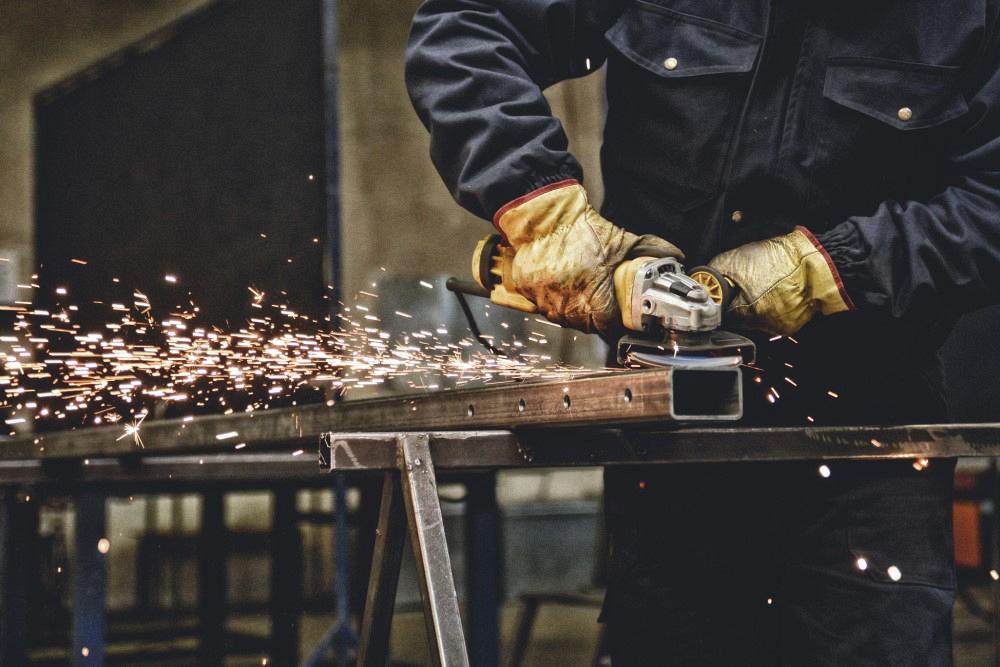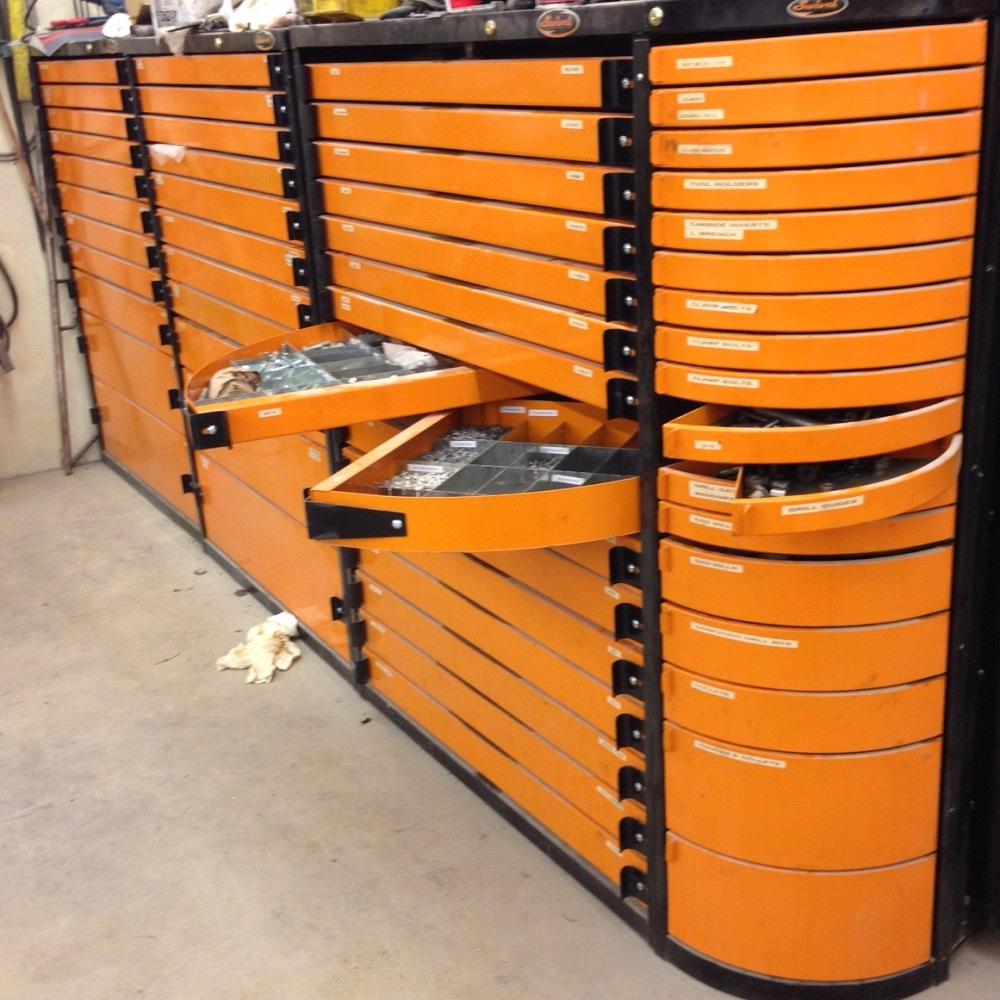Editor-in-Chief
- FMA
- The Fabricator
- FABTECH
- Canadian Metalworking
Categories
- Additive Manufacturing
- Aluminum Welding
- Arc Welding
- Assembly and Joining
- Automation and Robotics
- Bending and Forming
- Consumables
- Cutting and Weld Prep
- Electric Vehicles
- En Español
- Finishing
- Hydroforming
- Laser Cutting
- Laser Welding
- Machining
- Manufacturing Software
- Materials Handling
- Metals/Materials
- Oxyfuel Cutting
- Plasma Cutting
- Power Tools
- Punching and Other Holemaking
- Roll Forming
- Safety
- Sawing
- Shearing
- Shop Management
- Testing and Measuring
- Tube and Pipe Fabrication
- Tube and Pipe Production
- Waterjet Cutting
Industry Directory
Webcasts
Podcasts
FAB 40
Advertise
Subscribe
Account Login
Search
How metal fabricators take on their own challenges
The beauty of working in a fab shop is that it can build instead of buy solutions
- By Dan Davis
- February 1, 2022

Some of a job shop’s best work is fabricating products that help to resolve its own challenges. Getty Images
In writing about Okno Manufacturing, Arborg, Man., and its swivel-style cabinets for the February 2022 issue of The FABRICATOR, I thought about a story I worked on nine years earlier. The feature was a profile of DeWys Manufacturing, a fab shop that won The FABRICATOR’s 2014 Industry Award.
I recalled the DeWys story because they also came to their own rescue, like Okno Manufacturing did. The Canadian metal fabricator built its own cabinets to organize tooling because the company’s owner didn’t want to pay upwards of $10,000 for a cabinet he considered flimsy. The result is pretty impressive—and even launched a product line. DeWys had a work-in-process issue.
Like all job shops, DeWys at the time was battling the scourge of work-in-process in the aisles. Inventory also was an issue as a network of 20 high-density racks took up a ton of room.
DeWys employees looked at some potential storage systems and decided that they could build their own, which was exactly what they did. As a result, the racks came down in 2013, and they were replaced with a large racking system that contained 5-ft.-wide by 10-ft.-deep cassettes designed to hold sheet metal. The cassettes also could feed sheets directly into the material towers that fed the laser cutting machines.
I remember the racking system, which stood 19 shelves tall, because it was sort of like a Great Wall of newfound efficiencies. Appearing on the left side of the feature’s opening photo, the racking system towered over Jon DeWys, an owner of the company, and C.T. Martin, then the company vice president.
That’s the type of ingenuity and execution that you expect from the best metal fabricators. If a customer can dream it up, they can build it. Well, that same lesson applies to the actual metal fabricators themselves.
Nick Martin, who works for Barnes MetalCrafters, Wilson, N.C., and writes for The FABRICATOR’s blog, had a very entertaining piece in early December about his love of the Ford Bronco and his side business of fabricating aftermarket parts for trucks and SUVs. His first vehicle was a 1990 Ford Bronco II, and that launched his love of the truck. His first aftermarket part was for a new Ford F-150 he purchased in 2012. It was a bumper grille insert, and he made a few extra, which he sold on eBay. That cemented the idea that this type of fabrication work could be its own business, and that’s how Mountains2Metal got its start. (Check out the blog to see his new Bronco!)
Martin had a vision to fabricate something for himself, but it turned out to be the perfect product to complement the shop’s varied work. Okno Manufacturing found that to be true as well when it rolled its swivel-stye cabinets out to the masses.
These personal fabrication tales are great examples of why metal fabricating is so interesting. The fabricators have a personal connection to the end product. They can share the details that they just can’t share about other parts on the shop floor. Whether it’s because of a nondisclosure agreement or simply unfamiliarity with the job because it’s one of 1,000 making its way through the shop that month, sometimes fabricators don’t have a lot to say about a part or an assembly.
That’s why these in-house fabrication jobs and personal projects that turn into product lines are ingrained in my head rather than other projects that I’ve seen and heard about. The details make the stories memorable.
Certainly, other shops out there have their own in-house fabrication projects, either to improve shop floor performance or to support a new business endeavor. Let us know what’s going on, and maybe we’ll follow up with a story down the road.
subscribe now

The Fabricator is North America's leading magazine for the metal forming and fabricating industry. The magazine delivers the news, technical articles, and case histories that enable fabricators to do their jobs more efficiently. The Fabricator has served the industry since 1970.
start your free subscriptionAbout the Author

Dan Davis
2135 Point Blvd.
Elgin, IL 60123
815-227-8281
Dan Davis is editor-in-chief of The Fabricator, the industry's most widely circulated metal fabricating magazine, and its sister publications, The Tube & Pipe Journal and The Welder. He has been with the publications since April 2002.
- Stay connected from anywhere

Easily access valuable industry resources now with full access to the digital edition of The Fabricator.

Easily access valuable industry resources now with full access to the digital edition of The Welder.

Easily access valuable industry resources now with full access to the digital edition of The Tube and Pipe Journal.
- Podcasting
- Podcast:
- The Fabricator Podcast
- Published:
- 04/16/2024
- Running Time:
- 63:29
In this episode of The Fabricator Podcast, Caleb Chamberlain, co-founder and CEO of OSH Cut, discusses his company’s...
- Trending Articles
How to set a press brake backgauge manually

Capturing, recording equipment inspection data for FMEA

Tips for creating sheet metal tubes with perforations

Are two heads better than one in fiber laser cutting?

Hypertherm Associates implements Rapyuta Robotics AMRs in warehouse

- Industry Events
16th Annual Safety Conference
- April 30 - May 1, 2024
- Elgin,
Pipe and Tube Conference
- May 21 - 22, 2024
- Omaha, NE
World-Class Roll Forming Workshop
- June 5 - 6, 2024
- Louisville, KY
Advanced Laser Application Workshop
- June 25 - 27, 2024
- Novi, MI



























